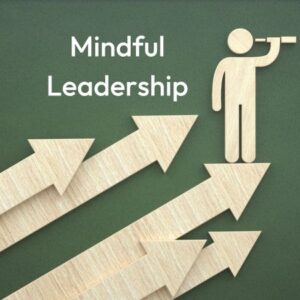Last February, during the We Thrive launch (Route 2.1), we received so many questions
during the open forum. Since then, we’ve gotten even more questions through our social media and during the corporate webinars we conduct. Here are 5 more answers to frequently asked questions:
Q: What are examples of situations that cause mental health issues such as depression and anxiety in the workplace and how should this be addressed by the employee or the company?
In 2019, even prior to the pandemic, the WHO already called attention to burnout as a workplace crisis around the world. Burnout is a syndrome that is specifically attributed to unmanaged work-related stress. It is characterized by energy depletion or exhaustion, disconnection or feelings of negativity related to one’s job, and reduced work efficacy or productivity. Burnout increases the risk of developing mental health problems, most common of which are depression and anxiety disorders. There are a combination of individual and job-related factors that could affect one’s risk for burnout. Individual factors include your biological sensitivity or reactivity to stress, unmet psychological needs, the lack of coping and stress management skills, and a problem-focused mindset or negativity bias. On the other hand, job-related triggers to burnout include problems with job design, lack of support from teammates and managers, not having enough opportunities for career development, emotionally unsafe workplace culture, and absence of work-life balance.
Mental health and wellbeing in the workplace are best addressed through prevention efforts in order to mitigate stress injuries that can cause more damage. Examples of prevention activities are having open and honest discussions about mental health, promoting self-care and team-care practices, strengthening peer support, cultivating a compassionate culture, training managers in the interpersonal aspects of their role in order to support their team members more effectively, and carefully examining systems and practices that make it more difficult for employees to experience work-life balance. The availability of individual consultations with mental health professionals also enables employees to have a safe space not just in addressing problems or challenges but also in proactively developing a wellbeing plan.
Q: What’s the simplest thing we could do whenever we feel overwhelmed?
We need to understand how stress and anxiety reactions are triggered in order to manage them effectively. Our nervous system has evolved through millions of years with safety and protection as a priority. It is constantly scanning for possible danger—real or imagined, and activates a response to keep us safe. In our present situation with the pandemic, cumulative fears and stressors can cause our threat response to become over-activated. This has become a very common experience among many people all over the world. The key to managing feelings of overwhelm and anxiety is to be aware and intentional so that we can stay in the driver’s seat of our mind, responding instead of reacting.
When feeling overwhelmed, it is important to pause. In a state of overwhelm, we do not think clearly, we’re likely to pay more attention to negative or problematic aspects of a situation, and we tend to give in to urges or impulses that don’t lead to skillful or effective coping. Pausing could mean taking a break from thinking, going out for a walk, taking a moment to calm your mind through breathing or engaging in a recreational activity, perhaps talking to a trusted friend. Pausing doesn’t mean you’re not going to address the problem. It means slowing down to prevent hydroplaning. When we pause, we help deactivate our threat response and put ourselves in an internal state that can empower us to deal with the situation in a constructive way. And when you’re ready to re-engage with the problem, ask yourself, what is within my control? Focusing on what we can versus what we can’t control decreases our helplessness.
Q: How can we avoid or fight the negative thoughts that trigger anxiety and depression?
Resilience does not mean always feeling or thinking positive. Resilience involves being able to face down reality, not denying the challenges that we need to confront and manage in order to successfully adapt to reality. We can develop a curious and observing mind towards our thoughts. Often times we assume our thoughts to be truths, when actually, many times they are just projections of our fears, traumas, and judgments. When negative thoughts arise, observe it with curiosity and practice “checking the facts.” How do we “check the facts”? Pay attention to the thought, how am I interpreting this situation? Practice looking at all sides of a situation. Are there possible alternative interpretations or explanations? Does my assumption fit the facts? If there’s a realistic danger, ask yourself, what’s the worst that can happen? Imagine how you can cope well with the worst-case scenario and plan a constructive response.
Q: Can you provide us some tips on how to manage our stress as it affects my physical and mental health. I feel tired despite having enough hours of sleep.
Sleep is a fundamental aspect of wellbeing. Studies show getting enough high-quality sleep can positively affect your energy, activity, mood, weight, and more. It’s possible for us to sleep long hours but not feel restored if we spend a lot of time being restless and not getting enough deep sleep. The following practices could help improve the quality of our sleep:
- exercising earlier in the day or at least 3 to 4 hours before you go to sleep
- maintaining consistent sleep schedule
- doing deep breathing exercises to shift your body and mind into a more relaxed state as you prepare for sleep, and
- cutting back on caffeine and sugar especially after 3:00 pm.
Aside from getting good sleep, we can reduce our vulnerability to stress with these practices:
- Moving regularly breaks up sedentary time and can help improve our wellbeing. For example, you can set a goal of moving 250 steps every hour, which would roughly equal a few minutes of walking. The WHO recommends 150 minutes of moderate or 75 minutes of vigorous activity weekly.
- According to UCSF Health Psychologist, Dr. Elissa Epel, dietary patterns emphasizing whole foods (i.e., foods that have not been processed or refined) were associated with lower depression, anxiety and stress, whereas a Western dietary pattern (i.e., high intake of sugar, fat, red meat, processed food, refined grains, high-fat dairy) was associated with a higher risk of poor mental health.
- The practice of mindfulness has been shown in numerous studies to decrease stress and improve our general wellbeing. Mindfulness is the practice of slowing down to pay attention to the present moment as it unfolds with curiosity and non-judgment. You can take your first steps with mindfulness by stopping for a minute or two to breathe, simply paying attention to the in-breath and the out-breath. Mindfulness is an anchor to the present moment that helps us not get carried away by busyness, worrying, or strong emotions. If you want to develop and deepen your mindfulness practice, try using an app such as Insight Timer, Healthy Minds, Headspace, or Calm.
Q: How do we know that it’s time to check with a professional?
In general, professional help might be needed if you experience the following (www.mayoclinic.org):
- Marked changes in personality, eating or sleeping patterns
- An inability to cope with problems or daily activities
- Feeling of disconnection or withdrawal from normal activities
- Unusual or bizarre thinking
- Excessive anxiety
- Prolonged sadness, depression or apathy
- Thoughts or statements about suicide or harming others
- Substance misuse
- Extreme mood swings
- Excessive anger, hostility or violent behavior
Many people experience mental health problems but avoid seeking help out of shame or fear. If you are concerned about your mental health, don’t hesitate to seek professional support because addressing mental health problems in its early phase will make it easier for you to recover. It’s also a big misconception to think that you have to be “crazy,” desperate, or on the brink of a meltdown to see a mental health professional. Most people can benefit from talking to a nonbiased professional without fear of judgment to deal with life issues, make important decisions, or to simply learn how to get better at self-care.
Have more questions or interested in mental health and wellbeing programs for your company? Contact us and we’ll help you get started.




